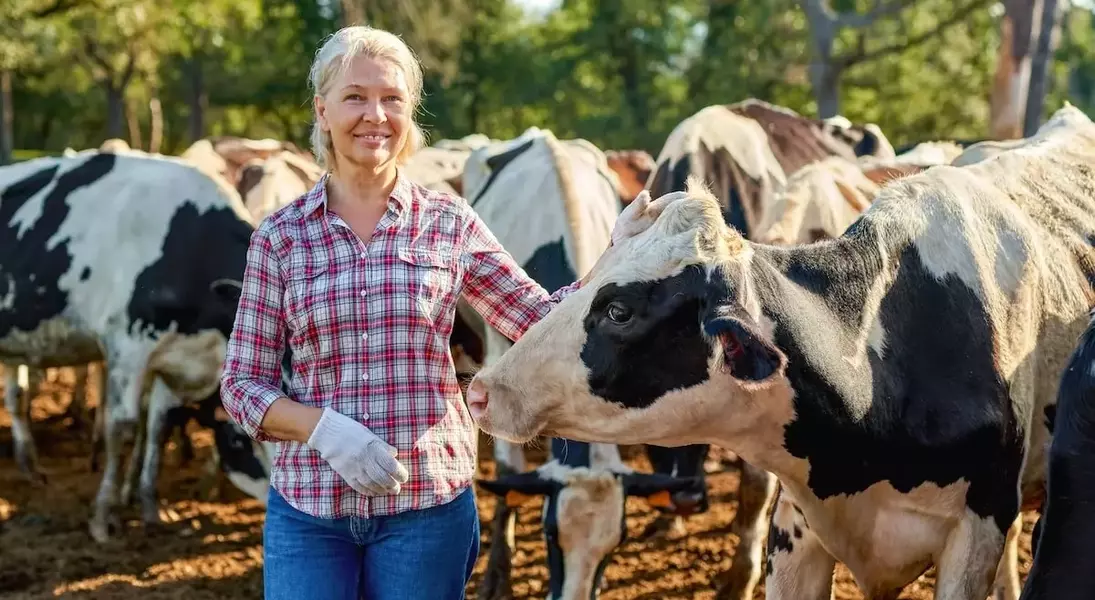Australia's agricultural sector is experiencing unprecedented growth, driven by strategic trade agreements and market diversification. The country's farmers are capitalizing on tariff reductions and expanded access to key international markets, setting the stage for a prosperous future.
Empowering Farmers, Boosting Prosperity: A New Era of Trade Opportunities
Promising Horizons in International Trade
The landscape of global trade is evolving, and Australia stands at the forefront of this transformation. With the signing of pivotal free trade agreements (FTAs), Australian farmers now enjoy enhanced market access to regions previously out of reach. These agreements have not only opened doors but also solidified Australia's position as a reliable supplier of high-quality agricultural products.For instance, the recently inked trade deal with the United Arab Emirates promises substantial benefits. This agreement paves the way for increased exports of red meat, grains, and seafood, aligning perfectly with the UAE's growing demand for premium agricultural goods. Moreover, the FTA with the United Kingdom has already begun to bear fruit, with significant improvements in beef quotas and reduced tariffs on various commodities. Such advancements underscore the government's commitment to fostering a robust and resilient agricultural export sector.Economic Benefits of Expanded Trade Networks
Trade diversification has emerged as a cornerstone of Australia's economic strategy, yielding tangible results. By expanding its network of trading partners, the nation has not only diversified its export portfolio but also created numerous job opportunities across industries. According to recent statistics, one in four Australian jobs are now linked to trade, with export-related positions commanding 10% higher average annual incomes.This surge in employment and income levels is particularly evident in regional communities, where agriculture plays a vital role. Strengthening the agricultural sector has led to the creation of new business ventures and higher-paying jobs, benefiting both direct producers and those involved in the supply chain. For example, the lifting of trade barriers on barley, oaten hay, cotton, timber, wine, and seafood to China has revitalized these industries, contributing significantly to the national economy.Strategic Policy Initiatives Driving Success
The Federal Government's steadfast approach to trade policy has been instrumental in achieving these milestones. Minister for Trade and Tourism, Senator Don Farrell, emphasizes the importance of maintaining a steady hand on the tiller. His statement reflects the government's dedication to removing trade impediments and supporting primary producers.One notable achievement is the resolution of long-standing trade issues with China. The removal of restrictions on several key commodities has reinvigorated bilateral trade relations, opening up new avenues for Australian exporters. Additionally, ongoing negotiations and the implementation of existing FTAs continue to yield positive outcomes. Tariff cuts and quota adjustments in agreements with Mexico, Korea, and the UK have bolstered the competitiveness of Australian red meat exports, setting records in recent years.Future Prospects and Continued Growth
Looking ahead, the forecast for Australia's agricultural exports remains optimistic. Projections indicate that exports could reach $70.1 billion in 2024-25, marking the third-highest figure on record. This growth trajectory is fueled by continuous improvements in market access and the unwavering efforts of Australian farmers.Minister for Agriculture, Fisheries, and Forestry, Julie Collins MP, highlights the significance of these developments. She underscores the need to build on the achievements made since the government took office, ensuring that the agricultural sector remains a driving force for economic prosperity. As new trade opportunities emerge and existing agreements evolve, the future looks bright for Australia's agricultural industry.
